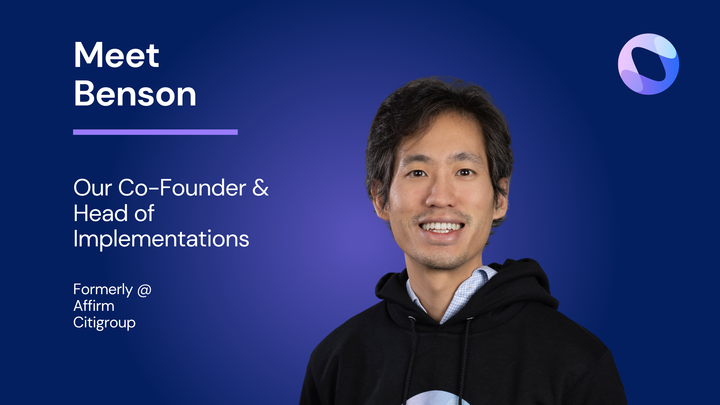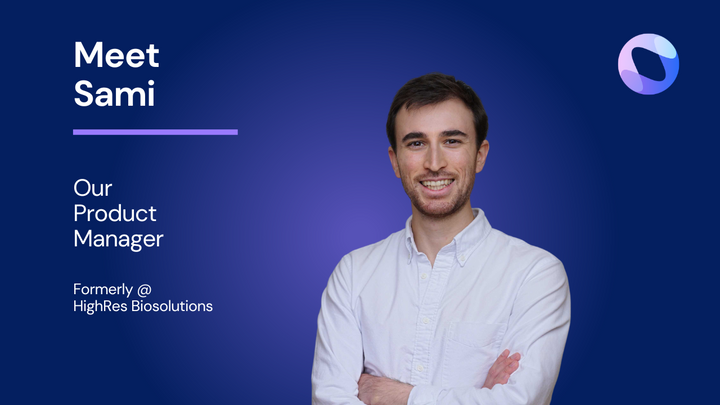6 Questions with Namrata Patil, our Head of Client Experience
A new installment in our "Meet the Team" series.

Name: Namrata Patil
Title: Head of Client Experience
Location: Bay Area
Our Head of Client Experience, Namrata Patil, has a unique role here at Ganymede: she sits squarely at the crucial intersection of implementation services management and client success. And this is no coincidence—after all, her career trajectory from R&D to post-sales has positioned her to understand precisely how effective technology introduction and adoption leads to happy clients.
In our Q&A below, we discuss the challenges of implementing data management solutions in conservative industries like biopharma, emphasizing the need for change management strategies and stakeholder engagement.
At Ganymede, she focuses on delivering value beyond project completion, ensuring customers not only use new software solutions, but thrive with them. The key? People-centric implementation strategies and flexible approaches to the data that can adapt to evolving scientific needs. Meet Namrata!
1) Could you tell us a little bit about your background? Where were you before you joined Ganymede?
I have been in the biotech pharma industry for the last 10 years now and have been focused specifically on tools that can help scientists on the bench rather than being the scientist myself doing the research. With all the companies I have worked for, it has been great to dabble in the R&D space, QC/QA in manufacturing, marketing, sales, and partnerships before finding my home in a post-sales role. When I first started my career, I think my lack of interest in a specific area ended up being beneficial for me because I was just curious to try different things wherever the opportunity would arise. The one thing I learned in my career was that I liked jobs that were more people focused and I never knew there were career opportunities out there that could focus on that, especially in this industry. I just assumed if I wanted to do something with science, I had to be on the bench. But during my time at companies like ProteinSimple, Science Exchange, Benchling, and now Ganymede, I got the opportunity to work with customers in the Biotech Pharma Industry without actually being the scientist doing the research.
2) You've run software implementations previously at Benchling, and do so now at Ganymede. What are some of the most significant challenges you have faced as an implementation manager, and how did you and your team overcome them?
At Benchling and at Ganymede the focus has been to really showcase and highlight the importance of data management and how crucial it is to speed up the research within Biotech/Pharma. Having been in this industry, I have seen such amazing and cool work being done from companies, whether that is engineering cells for therapies or using synthetic biology to make alternative proteins. But what I tend to see is that these companies tend to follow traditional methods when it comes to sharing information in general and have a hard time accepting change. Even with the big move to cloud based solutions and so many more options available now than before, we still see customers who are tracking their data and experiments in their physical notebooks and moving files around with a USB stick.
3) How do you define a successful implementation? Is there a set of “minimum requirements” that you suggest be in place before approaching a solutions vendor?
My minimum requirement is to have a happy and successful customer. That is the motto that I run by and what I want my team to focus on is how do you build value for the customer that they can’t imagine being without us and the product? Obviously as a project manager what I define as successful on an implementation is if I can get a project completed on time and on budget, but I try to find the middle ground between this and value based delivery. I think this mix is important when customers are looking for vendors because even though you are purchasing a solution, the people you interact with at the company and how well you can work with them is such an important factor, and the flexibility & customization they provide really translates to having a successful implementation.
When prospective clients are looking for a solution and trying to understand the level of preparedness they need to be at for a SaaS product, there are a few key areas they should really focus on:
- What is the need for the business right now and does the solution address it while also providing the flexibility to adjust and grow with the changes in business needs.
- Make sure that the relevant teams within the company are bought in on the solution and you have executive leadership buy-in. SaaS implementations tend to be long, so you want to make sure you have support from multiple stakeholders to enforce the change once you have the solution up and running.
- Having a plan in place on what the data strategy approach does help tremendously. But if you don’t have a full plan, that is also fine, as long as you plan to implement simultaneously with the rollout. At minimum there should be an individual person or team that is focused on this and their role is to prioritize figuring out a data strategy for the company. This person or group will end up being a key player and spend most of their time as an implementation owner during the rollout.
4) Change management — it’s a boogey man for anyone introducing new software into an organization. What’s your strategy for managing change management?
It is a combination of things that need to happen for an efficient change management process: communication, stakeholder involvement, and proper planning. That is why having an implementation plan for the software that has a phased approach to rollout the software, engagement from stakeholders from multiple levels at the company, build out testing plans to vet the many use cases, provide custom training, continue to support and gather feedback from users, and create a group of super users and champions that can help enforce change at the company.
5) There is a ton of innovation happening right now when it comes to data usage in the life sciences. Most notably, we see strong industry-wide interest in bringing AI and ML to the lab. What advice would you give to IT leaders in biotech searching for the right data solutions today?
I think in general just getting buy-in from executive stakeholders who can make a top down impact will really help for IT leaders who want to push for a good data management tool that is utilized throughout the company. Finding tools that allow for standardizing the data and pushing the importance of data governance will be important when thinking to move towards AI and ML. I truly think if you don’t fulfill the prerequisites of clean data and standardization around the data, it is really hard to be successful in AI and ML. So working with vendors who have data solutions that push for that but also provide flexibility and a way to scale on platform as the science continues to change, means you can see a solution sticking around longer.
I've also learned that there is no one size fits all product that can fulfill all the needs of a biotech pharma company, which is why I really like our concept here at Ganymede. We are not pushing for our tool to be the only tool that is used and is the source of truth. We know that companies will have many solutions in their ecosystem based on their needs, so we provide the flexibility to connect to many different systems and instruments in their ecosystem instead of dealing with the overhead of replacing tools. Instead we want folks to continue to use the tools that they use, but want to connect to them and provide a way to automate where the data goes and is stored.
6) Looking ahead, what emerging technologies or trends do you believe will have a profound impact on scientific software and lab data management in the coming years?
Having gone to a recent conference after taking a hiatus from the conference circuit for a few years, I was honestly so impressed to see how many solutions were out there around AI/ML. It was really exciting to see, but it still seems so early that the future impact of that still feels a little unknown. I do think if AI/ML can help companies reduce the time and cost of bringing new drugs to market, it will drastically change the lives of people.




